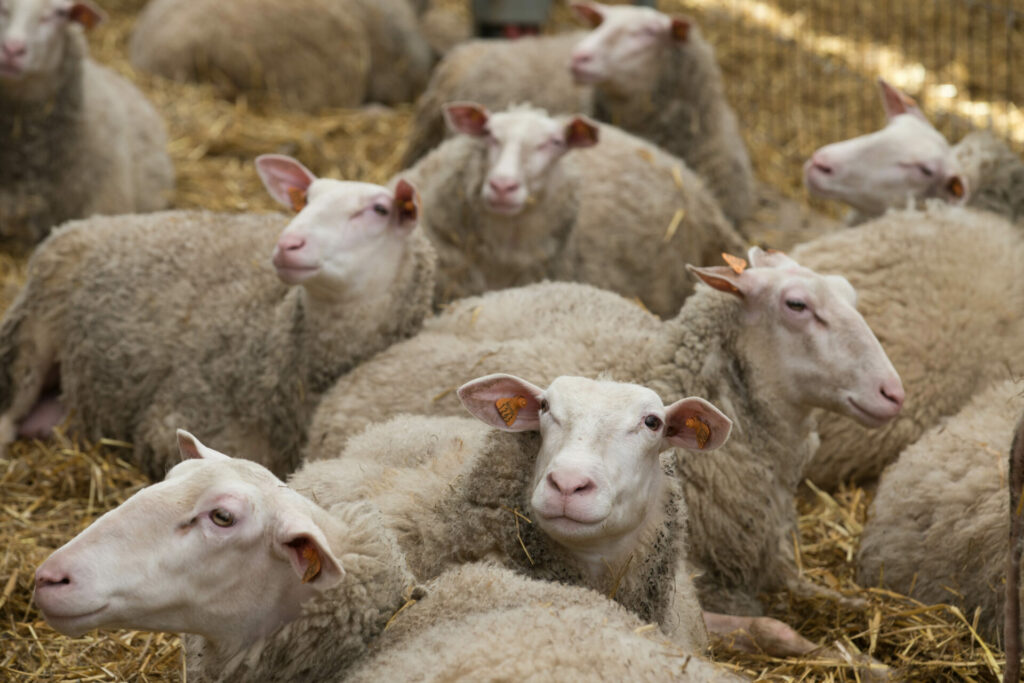In the wake of a Bluetongue disease outbreak in the Netherlands, the country's sheep sector is gripped by a wave of anxiety and distress.
The absence of vaccines against this devastating viral disease has left sheep farmers feeling powerless and desperate in the face of a crisis that has claimed a staggering number of lives within a short time span. Unsurprisingly, concerns are rising in neighbouring Belgium.
Bluetongue has unleashed havoc across the Dutch countryside since its emergence in early September. According to data from the Dutch Sheep and Goat Breeders' Organization (NSFO), the death toll among sheep has surged by 14,720 compared to typical figures. This dire situation equates to an average of 520 sheep succumbing to Bluetongue every day in the last two weeks.
What is Bluetongue disease?
Bluetongue is a viral affliction with a distinct triad of symptoms: fever, facial swelling, and foot inflammation, succinctly described as the three 'Fs.' Sheep affected by Bluetongue exhibit high fevers, pronounced head swelling, including the tongue and lips, and painful hoof inflammation.
Occasionally, the disease even causes the tongue to turn blue. Afflicted animals tend to lie down and lose their appetite, making Bluetongue a particularly aggressive and agonising ailment. Experts fear a mortality rate ranging from 30 to 50% among infected animals.
Bluetongue can also affect other ruminants, such as cattle and goats, though these animals are less likely to display noticeable symptoms. Fortunately, for humans, there is no risk of contracting the disease as it does not transmit to us.
Bluetongue does not spread directly from one animal to another. Instead, the virus is disseminated via tiny mosquitoes known as midges. Ruminants can transmit the disease to each other only through blood or semen. Unfortunately, culling affected animals does not significantly help control the disease, as these insects continue to propagate regardless of the livestock population.
Last week, the first case of Bluetongue serotype 3, the variant prevalent in the Netherlands, was reported in Belgium on a small sheep farm in Merksplas. Although there have been no further confirmed cases, the Federal Agency for the Safety of the Food Chain (FASFC) receives daily reports of suspected cases. Stopping the virus's spread is challenging, as it tends to propagate explosively, just as it did in 2006 when Bluetongue serotype 8 struck Belgian sheep en masse.
What can farmers do?
Containment measures are challenging due to the virus's capacity to travel significant distances via wind-blown midges. To minimise the risk, experts recommend keeping animals in barns, particularly during dusk when midges are most active. Adequate ventilation can also help deter these mosquitoes.
The most promising relief, however, comes in the form of a vaccine. Following the 2006 outbreak, vaccination became mandatory in the Netherlands, effectively reducing the incidence of the disease. Regrettably, a vaccine for Bluetongue serotype 3 is not yet available in Europe, despite being accessible in South Africa. Dutch authorities have cited concerns regarding its safety and effectiveness. Experts hope that pharmaceutical companies can potentially develop a vaccine in as little as six months, given their prior experience with other Bluetongue serotypes.
The panic is palpable in the Dutch sheep sector as sheep farmers grapple with feelings of helplessness. A recent information session held by Dierengezondheid Vlaanderen (DGZ) for sheep farmers reflected the overwhelming anxiety that has gripped the community, particularly among those who have experienced previous outbreaks. Farmers are keenly aware of the severe consequences, both economically and for the welfare of their animals. Compensation for losses remains limited, leaving sheep farmers facing grim prospects.
As the sector yearns for a reprieve, many are hoping for a prolonged period of cold weather as temperatures below 10 degrees or frosty nights reduce the activity of disease-transmitting midges. This respite may buy time until spring when midges become active once more, allowing for vaccination campaigns to take effect.
In the face of this bluetongue crisis, the Dutch sheep sector remains vigilant, hoping for swift action in developing a vaccine to protect their herds and stem the loss of these valuable animals.

